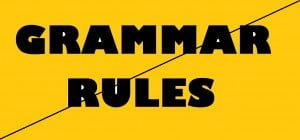For many years, the Graduate Record Examination (GRE) has served as a crucial first step for students planning to pursue graduate study in the United States. This year, the GRE will be shorter thanks to a series of reforms. The test will have shorter versions of each section, but will still accurately assess test takers’ verbal reasoning, quantitative reasoning, critical thinking, and analytical writing skills. If you plan to take the GRE General Test after September 2023, you should familiarize yourself with these changes and prepare accordingly. The following is a comprehensive summary of all the key modifications to the new, shorter GRE:
Change 1: Reduced Number of Questions and Shorter Testing Period
The length of the GRE General Test has been reduced from 4 hours to 1 hour and 58 minutes. This is a significant change aimed at improving test-takers’ concentration and decreasing test fatigue. The reduced time has been achieved by implementing the following changes in the test.
Reduced number of questions: The number of questions in the Quantitative Reasoning and Verbal Reasoning tests will be reduced. The number of questions in each section will drop from 40 to 27. These 27 questions will be broken up into 12 and 15 for for Section 1 and 2 respectively. This change applies to both quantitative reasoning and verbal reasoning. Despite the reduction in total number of questions, the average time allotted for each question has remained unchanged.
Removal of ‘argument’ section: “Analyze an argument” task has been removed from the analytical writing section. Moving forward, the AWM section will only have the “analyze an issue” task. As a result, you’ll only have to write only one essay.
Removal of the Unscored section: The GRE currently has an unscored section that is used for evaluation of questions by ETS. This section will be removed from the new, shorter GRE, as it does not affect the test taker’s final score.
No Scheduled Breaks: The current 10-minute break after the two hours of the test will be eliminated because the new test time will be less than 2 hours. Those taking the GRE at a testing center can still take unscheduled breaks; however, the clock will not stop. Exemptions to this policy will be made for test takers with disabilities or health-related needs.Online examinees are not permitted to take unscheduled breaks during the exam.
Change 2: faster Reporting of Test Results
Official GRE scores will be reported to test takers within 8-10 days after the exam. This is a significant improvement over the previous time frame of ten and fifteen calendar days. In the long run, this will save time for those filling out applications.
What won’t change as the GRE moves from its current format to a shorter one?
Despite the fact that the GRE General Test will be shorter, many features will remain unchanged. Given below are the important aspects of the test that won’t be changing:
- The basic structure of the GRE, including the presence of Analytical Writing, Verbal Reasoning, and Quantitative Reasoning sections, will remain unchanged.
- Scoring: All three sections will use the same scoring procedure, and the shorter test will use the same performance scales as the current test.
- The shorter GRE will still be section adaptive I. e., the difficulty level of the second section will be based on your performance in the first section.
- Although the GRE has been shortened, testing fees have not changed.
- Graduate and professional schools will use scores from the GRE General Test similarly, regardless of the length.
- As before, you can retake the GRE General Test up to five times in any rolling 12-month period (365 days), with a maximum of one attempt every 21 days.
- Your GRE scores will be considered valid for five years after your test date.
Why the ETS is changing the test format
These changes are based on feedback from previous test takers and are the result of expert analysis about how a better experience could be introduced for test takers while retaining the strong validity and reliability that universities expect.
Applying to graduate and professional programs is time-consuming. While you want to show your potential in a comprehensive way, you also want to get through your application checklist ASAP. Shortening the test will help students to stay focused and reduce fatigue. The shorter test will also allow ETS to deliver GRE scores faster. Students can complete their applications sooner as well.
What is yet to be announced?
Verbal and Quantitative Reasoning have had their total number of questions cut down to 27, but how those questions will be distributed among the subsections such as sentence equivalence, text completion and reading comprehension in verbal section, remains to be seen.
We also don’t yet have details on how the scoring algorithm might adapt to the reduced number of questions.
Which version of the test should you take- Shorter GRE vs. Current GRE
You should weigh your application deadlines against your personal preferences when deciding between the shorter GRE and the current GRE. The current GRE will be phased out on September 22, 2023, in favor of the shorter GRE. If your application deadline is early October or earlier, you should probably take the current GRE. However, if you have more time and your application deadlines are not pressing, you may want to take the shorter GRE because of its streamlined format.
At Dilip Oak’s Academy, We also provide detailed guidance on these processes under our Admission Counseling Services, including a selection of universities, documentation process and visa counseling, and mock visa interviews. In addition, as India’s leading Study Abroad Consultants, we have helped more than 33,000 students to secure their dream admits for various universities in America including MIT, Stanford, Cornell, Carnegie Mellon and other top-ranked universities.
We also offer GRE, TOEFL, and IELTS coaching, GRE Self Prep and guide students with university selection, application essays, and visa counseling under our Admission Counseling Services for USA, Germany and UK. To enroll, call us on 91-020-67444222, 91-8007878495



 First Things First
First Things First



